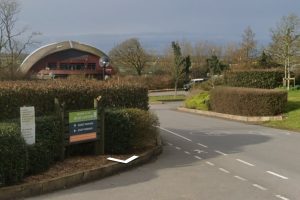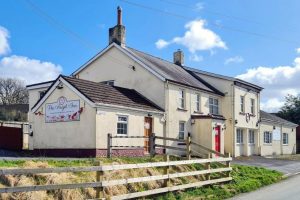SCHOOLS and other frontline council services in Swansea will receive more money in 2024-25 than currently, partly funded by a 5.99% rise in council tax.
Schools and the authority’s education department will get £232 million – a 6.4% increase – while the £171 million budget for social services is 8.9% higher than this year.
The contours of the budget were well-known ahead of a meeting at the Guildhall where it was set, but there were some last-minute crowd-pleasers such as an extra £3 million for road repairs.
Opposition parties tried unsuccessfully to amend the spending plans, with the Liberal Democrats pressing for a 4.99% rather than a 5.99% council tax hike.
Lib-Dem leader, Cllr Chris Holley, dubbed council leader Rob Stewart “Bob the bandit” for having transferred millions of pounds to a pot of reserves to help repay borrowing costs for city centre regeneration projects.
Cllr Holley said some of that money should be used to trim the council tax increase and also fund free parking in all surface car parks in the city centre from 10am to 3pm on Mondays to Thursdays. He also called for a freeze on all parking charges in the city.
“It’s all well and good building new buildings,” said Cllr Holley, referring to regeneration projects like the £42 million new office block on The Kingsway . “Great, wonderful – but we rely on people coming into the city centre to shop.”
Cllr Stewart said the Lib-Dems’ amendment would pile on future spending pressures for taxpayers and that the current parking offer in most city centre car parks – £1 for 1 hour, £2 for 2 hours, £3 for 3 hours, £4 for 4 hours and £5 for up to 24 hours – was simple. He also said the point of moving money into the pot of reserves – called the capital equalisation reserve – was to use it to avoid higher council tax hikes in the future.
The big picture is that councils everywhere are having to pay higher wages and other costs while facing demand and demographic pressures. Although they have received some extra Welsh Government funding they argue it’s not enough to cover these costs.
Therefore, they say, savings have to be made, council tax raised, and, where possible, reserves deployed to balance the books. Some councils are cutting services and increasing council tax by upwards of 10%.
Ben Smith, Swansea Council’s finance director, told councillors: “Be under no illusion, inflation has eaten massively into public services’s spending power over the last two years.”
He said that although Swansea’s finances were healthier than a number of other councils, the amount of “levers” available to elected members were limited.
Council tax, including town and community council tax, will raise £156.2 million in Swansea next year. The Welsh Government is providing £334.7 million. The combined sum of £590.9 million will be spent on frontline services, plus borrowing costs and Swansea’s share of the Mid and West Wales Fire Service budget, which has gone up again.
Savings and increases in charges worth nearly £25 million will be enacted, and a small number of posts at the council are under threat.
Overall expenditure, though, will be higher in 2024-25 than 2023-24. The council tax rise will mean Band D householders paying £1,641.95, although this excludes the South Wales Police budget. The 5.99% increase was said to be the fourth lowest in Wales’s for 2024-25.
As well as the extra £3 million for road repairs – taking the total expenditure on roads next year to £8.4 million – Cllr Stewart produced another two rabbits from the hat: £1 million for more sports changing rooms for girls and women, and £1 million for small-scale community projects. The £5 million needed to fund these pledges will come from reserves.
The Swansea Labour leader also said that £1 million would be invested in two new skate parks, although their locations aren’t known, and upgrading the county’s existing skate facilities.
Later in the meeting councillors approved housing and capital spending budgets for 2024-25.
Around £100 million will be spent on capital projects such as the ongoing restoration the Hafod-Morfa Copperworks area, the conversion of the former BHS store in the city centre into a new central library and community hub, the new Mumbles sea defence wall, and a new solar farm at the former Tir John landfill site, Port Tennant. There’s also £235,000 to upgrade the changing rooms at Mynydd Newydd playing fields, Penlan, and £217,000 for new entrances to Swansea Market. Funding for capital projects comes from borrowing, Government grants and the sale of council assets.
The council also expects to spend £55 million next year upgrading its stock of council houses, including the start of a major revamp of high-rise flats on Croft Street, Dyfatty. Energy efficiency and fire safety at the 1960s blocks will be improved, communal areas upgraded, and the flats themselves modernised. The £55 million investment programme includes £11.8 million on new council houses and the acquisition of other properties. Rent for council tenants will go up by 6% in April.



















